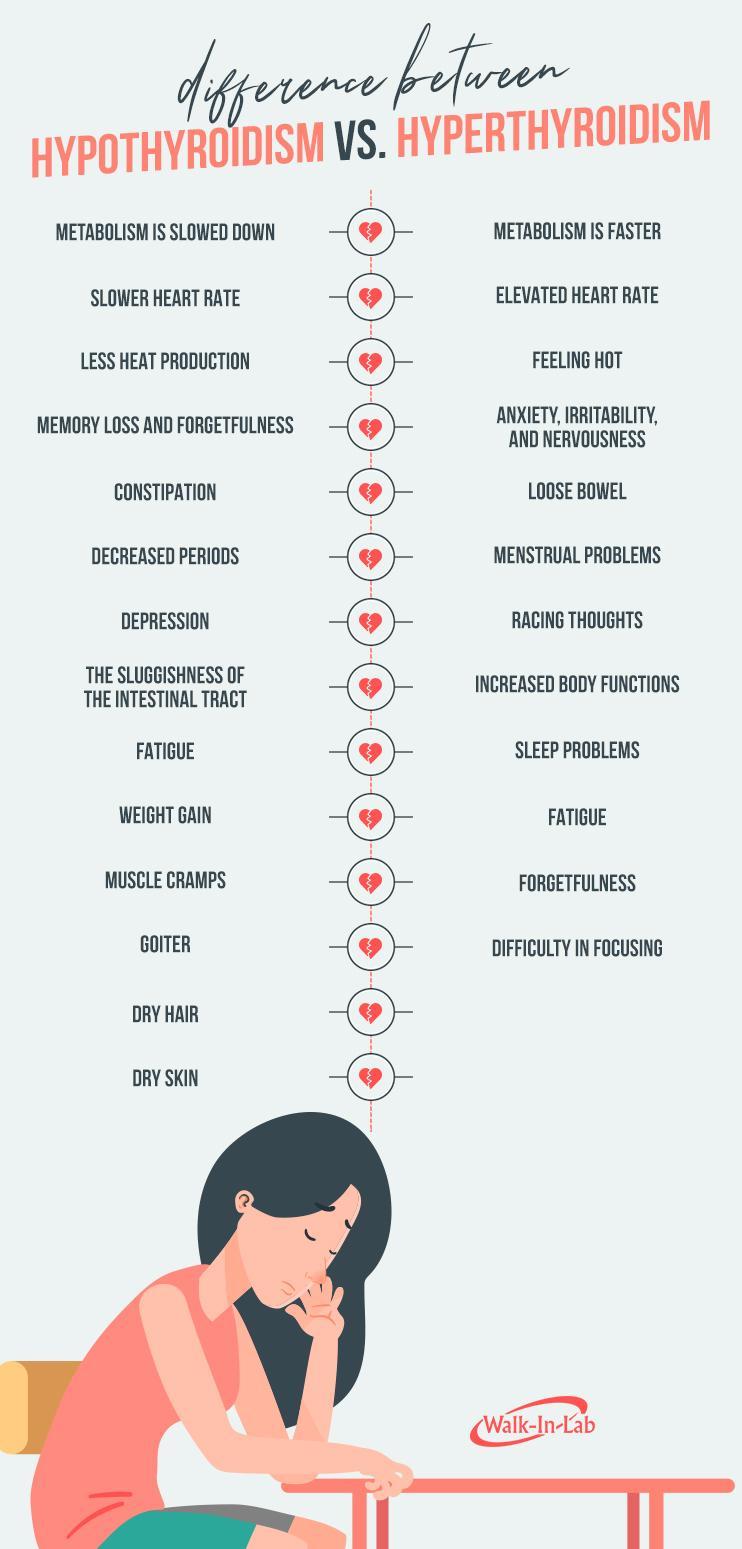Hypothyroidism vs. Hyperthyroidism
We’ve all heard the terms “Hyperthyroidism” and “Hypothyroidism” and more often than not,
these two terms are casually used in lieu of the other whichever one is more conveniently
remembered. But what’s really the deal with these “thyroidisms?” Let’s start by defining what
gland is affected by both these afflictions. The Thyroid Gland is a large ductless gland in the
neck which secretes hormones regulating growth and development through the rate of
metabolism. In layman’s terms, the thyroid gland plays a big role in the growth and development
of our body along with how fast we are able to convert our food intake into energy that our body
can use. Now that we have a basic understanding of what the Thyroid gland is for and how it
affects our body, let’s delve deeper into the what these two “isms” are and how they’re different
from one another.
Hypothyroidism
Simply put, Hypothyroidism occurs when the body’s thyroid gland cannot produce an
ample amount of hormones in order to function within normal levels. Since the Thyroid
gland controls all aspects of the body’s ability to digest food and convert it to energy,
having a disease which affects the Thyroid gland can cause many undesirable effects on
the body. In this case, Hypothyroidism can cause weight gain since the body cannot
efficiently convert food into useful energy due to the slowed down rate of metabolism.
Hypothyroidism is quite common and affects around 4.6% of the U.S. population. There
is no permanent cure for Hypothyroidism but medication is available. The medication
aims to restore the normal operation of the body’s thyroid function so that the body’s
metabolism rate and hormone levels return to normal.
Hyperthyroidism
Hyperthyroidism occurs when the body makes too much of the thyroid hormones,
thyroxine (T4) and triiodothyronine (T3), and becomes overly active. Irritation of the
thyroid gland known as thyroiditis allows too much thyroid hormone to enter the body’s
bloodstream. This can then lead to pain and discomfort. Medications, radioactive iodine,
or surgery are possible treatment options of hyperthyroidism.
The key takeaway from this is that the only thing that’s common between Hypothyroidism and
Hyperthyroidism is that they both affect the body Thyroid Gland. Other than that, they are two
different afflictions. Quickly summed up, Hypothyroidism is caused by INSUFFICIENT hormone
production in the Thyroid gland while Hyperthyroidism is caused by the OVERPRODUCTION of
hormones in the Thyroid gland.
Do you need to get tested? Click Here to see the Thyroid blood tests we offer.


